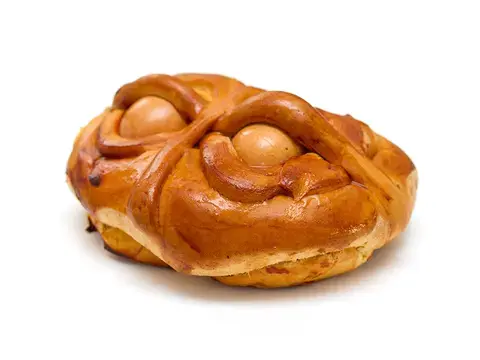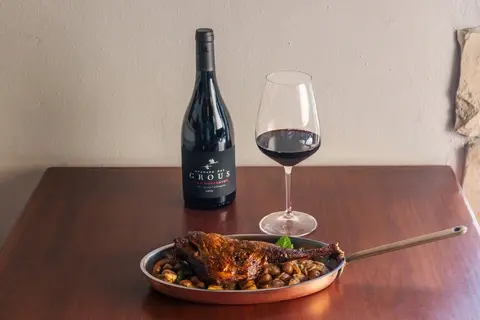
Easter is a moment for families to gather around the table, joining different generations and a genuine joy for creating memories where the aromas and flavours of traditional Portuguese cuisine are very much present.
Discover some of the traditional foods eaten during Easter: the folar, a sweet bread with an egg in the middle and the even sweeter folar de Olhão, the colourful sugar-coated almonds or a more savoury option, the cabrito assado.

"Folar" is a traditional Portuguese Easter cake, made with a dough that is similar to brioche and typically contains eggs, sugar, butter, and lemon zest. It is usually shaped into a large, round loaf and decorated with hard-boiled eggs that are dyed in bright colors and is often enjoyed as part of the Easter celebrations in Portugal.

"Folar de Olhão" is a specific type of folar that is native to the town of Olhão in the Algarve region of Portugal, typically made with flour, sugar, eggs, and cinnamon.

"Cabrito assado" is a roasted goat dish that is also commonly enjoyed during Easter in Portugal, particularly in the Alentejo region. The goat is typically marinated in a mixture of garlic, olive oil, and herbs before being roasted over an open flame or in a wood-fired oven. It is often served with potatoes and other vegetables.
Download the recipe and try it in your home.
Both folar and cabrito assado are important components of Easter feasts in Portugal, and they are often enjoyed with family and friends as part of the holiday celebrations.